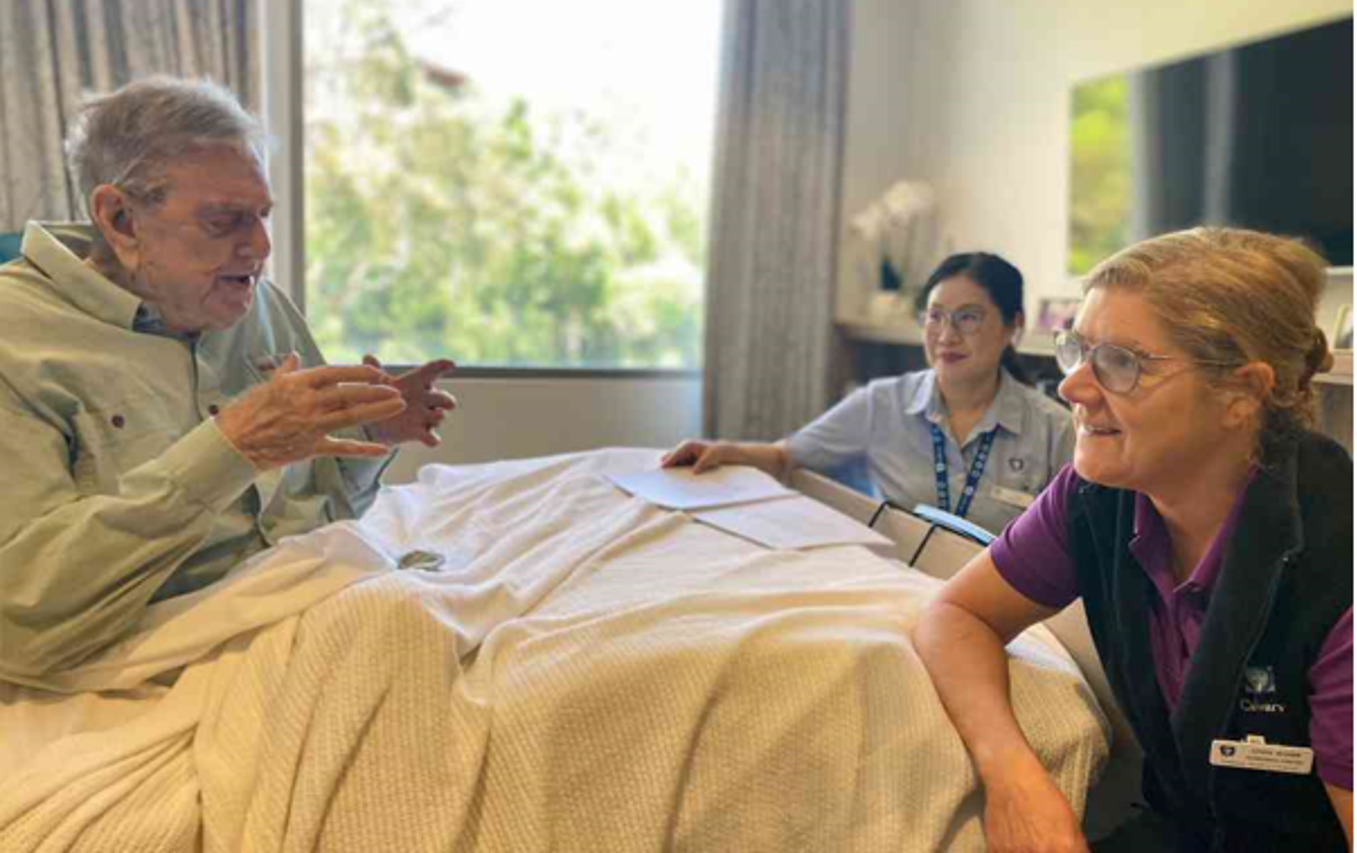Aiming to improve the independence of aged care residents living with mild-to-moderate dementia
28/09/2023

Lead project nurse at Calvary Ryde Wei Hu and occupational therapist Linda Maher (front) listen as retired priest and project participant Fr Don Willoughby explains his goals and aspirations.
There is a common misconception that there is little that can be done to support residential aged care residents living with dementia or a mild cognitive impairment to maintain their independence.
The University of Sydney, with residential aged care project partners Calvary and Whiddon, are being enrolled to take part in a five-year research implementation project that aims to improve the independence of residents living with mild-to-moderate dementia.
“This new approach is designed to help residents continue to participate in activities and maintain their independence and function for as long we can,” Dr Hobbs said.
To start the study, the University of Sydney, with residential aged care project partners Calvary and Whiddon, are trialling and evaluating a 20-week Interdisciplinary Care Home-based Reablement Program (I-CHARP) across 16 aged care homes.
The reablement program teams included experienced occupational therapists and nurses to develop holistic and tailored care plans with and for residents based on their individual needs and goals.
Enrolments and detailed assessments for the program began for eligible residents at Calvary’s aged care home in Ryde in Sydney last week, with homes in other parts of the country set to join as the study progresses. Among the first residents to sign up for the study was Fr Don Willoughby, who said he hoped it might “give some insights” and help other people.
The I-CHARP model builds on the Interdisciplinary Home-based Reablement Program (I-HARP), which successfully improved daily independence and slowed further decline among people with mild dementia living in the community.
“We’ve seen how it can work in other settings. We had many participants in our previous studies who told us how wonderful it was to have that sort of positive outlook rather than saying well ‘you can’t do this and you can’t do that’ all the time.”














